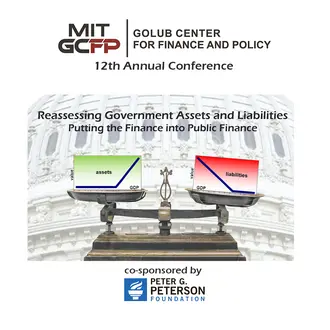While attending a conference of government financial managers in July 2015, I had the opportunity to participate on a panel to consider ways to improve the U.S. budget process and was amazed at the energy and enthusiasm for the topic. With hundreds of attendees cramming a large breakout session room, it is clear the key practitioners in the field are desperate for improvements in a process that has not only failed taxpayers in recent years but has also hindered the ability of government finance professionals to plan and execute the financial management programs of their agencies in a responsible way.
The basic tenets underlying today’s budget process in the U.S. flow from a commission appointed by LBJ nearly 50 years ago known as the President’s Commission on Budget Concepts of 1967. We live in a very different world today. Even if the current budget process worked well, a strong case can be made for reconvening another commission to consider reforms. A top ten list of differences between now and then driving the need include:
- Boomers are leaving, not joining, the workforce with significant fiscal consequence.
- Entitlement spending has skyrocketed in recent years.
- Huge peacetime deficits are being incurred, interest on the national debt is consuming a growing share of revenues and debt limit increases have become highly politicized.
- The nation’s physical infrastructure is old and in desperate need of repair. Some contend failures in the current budget process favor consumption spending at the expense of investment.
- The government is playing a large role in providing credit and insurance to its citizens, with complex budgetary implications and contingent liabilities that can last for decades.
- The use of trust funds – like Social Security – and a proliferation of offsetting receipts confuses and distorts budgetary decisions.
- The tax code is increasingly incomprehensible.
- The use of tax expenditures obfuscates costs and the evaluation of related public policies.
- Tremendous advances in computational power and the availability of data provides opportunities for transparency and accountability that would have been impossible to consider in 1967.
- Advances in financial technologies and risk management techniques provide opportunities to protect taxpayers not available previously.
The panel, comprising three current federal chief financial officers and myself (a former one), had a lively debate on the topic. Two of the panelists suggested incremental changes to the current process as a more pragmatic approach than a complete overhaul. Another panelist advocated a move to biennial budgeting as a part of broader reforms to the process. While reasonable suggestions were made to improve the process, it’s difficult to consider tinkering at the margins given the list above. (I appreciate the fact that being in charge of budgeting at a federal agency constrains one’s ability to advocate for a complete overhaul.) After the panel concluded, I was heartened at the many attendees who approached me to offer their support to the idea of a new U.S. budget process commission.
There has been some recent movement in Washington DC on the topic of budget process reform. The Committee for a Responsible Federal Budget (http://crfb.org) leads a Better Budget Process Initiative aimed at putting forward specific options to reform and improve the budget process in a wide range of areas. Moreover, a bipartisan group of Congressman led by Representatives Jim Renacci (R-OH) and John Carney (D-DE) introduced legislation in May 2015 to significantly reform the budget process. So momentum could be building for change.
The conditions that led to the formation of the 1967 commission are once again resident: confusion over budgetary and accounting processes and results, poor accountability and transparency, a lack of public understanding, and a failure to consider long-term implications of federal fiscal policy. Clearly, form follows substance and while process reforms are no substitute for the tough policy decisions that must be made to keep the U.S. on a sustainable fiscal path, the time may be right for consideration of fresh budgetary procedures for the U.S. government.



